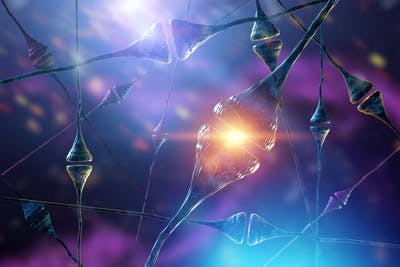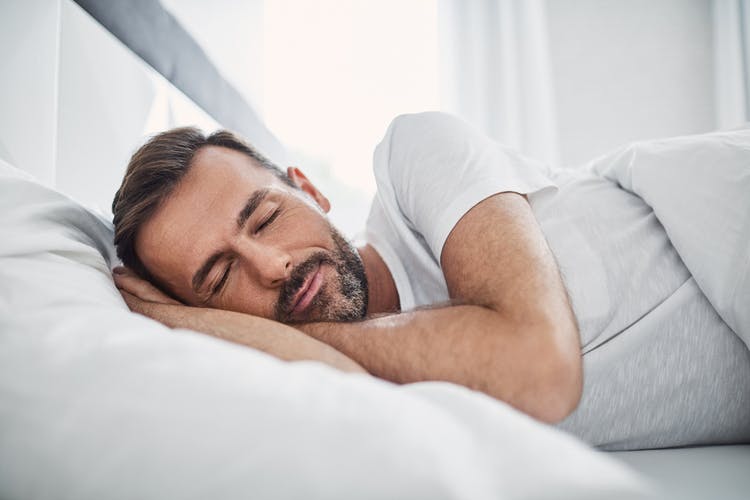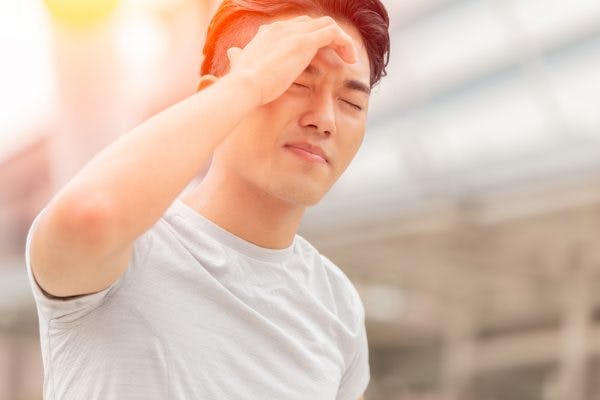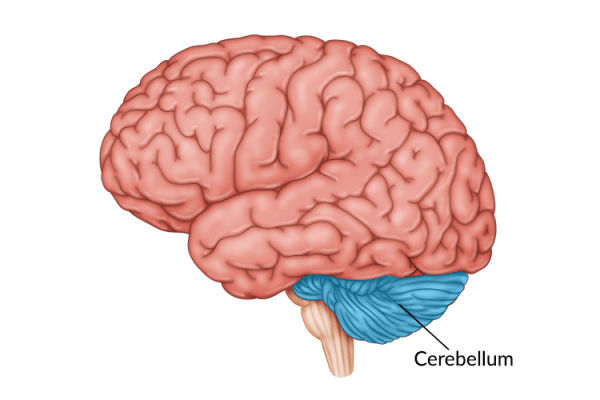Wondering what to do when you can’t sleep after head injury? Quality sleep offers many important benefits to patients with a brain injury.
For example, REM sleep — the deep sleep that occurs at intervals throughout the night — helps your brain process information about your body. During this period, the brain transfers short-term memories about muscle movement to the temporal lobe where they become long-term memories.
Therefore, sleep is one of the best things you can do to promote a successful recovery from a head injury. Unfortunately, brain injury often leads to insomnia, which prevents patients from getting the restful sleep they need.
This article will explain when sleep is considered safe after TBI, why it might be difficult to fall asleep, and how to get better sleep after head injury.
When Can You Sleep After Head Injury?
Many people believe that someone should not sleep right after a concussion. This begs the question, is it safe to sleep after a head injury?
According to the health professionals at the Mayo Clinic, it is not necessary to keep someone awake after their concussion. In fact, as long as they do not show signs of a hematoma (discussed below) it is fine to let them sleep.
Potential signs of a life-threatening hematoma include:
- Severe or progressively worsening headache
- Sudden changes in behavior, such as confusion, lethargy, irritability, or restlessness
- Dilated or uneven pupils
- Convulsions and/or seizures
- Drainage from nose or ears
- Vomiting more than twice
If your loved one displays any of these symptoms after a head injury, call an ambulance immediately.
But what if you want to sleep after a head injury, and your brain just won’t let you relax? The rest of this article will explain what to do when that is the case.
Why You Can’t Get to Sleep After Head Injury
Sleep disorders are some of the most common secondary effects of a head injury. While some patients experience excess sleeping and fatigue (also known as hypersomnia), many TBI survivors experience the opposite problem.
In fact, studies indicate that nearly 30-70% of people report difficulties sleeping within the first few weeks of their head injury.
There are several possible reasons that may explain why you can’t sleep after your head injury. We’ll examine some of these problems in the sections below:
1. Physical and Chemical Problems

To understand how a head injury can affect your ability to sleep, it will help to first understand how sleep works.
Your brain controls sleep patterns through a process called circadian rhythms. These rhythms send signals to your body to let it know when to sleep and when to wake up. Therefore, injury to the areas of the brain that produce these signals can cause disturbances in your body’s internal clock, making it difficult to fall asleep at night.
In addition, there are several neurotransmitters that regulate your sleep. After a brain injury, it’s possible that the brain is not producing enough of these neurotransmitters. This will make it difficult to sleep during normal hours.
2. Breathing Problems
After a head injury, the brain’s ability to control breathing during sleep can become altered. For example, since brain injury affects muscle control, it can weaken your tongue and throat muscles. As a result, your soft palate can lower while you sleep, blocking your airways.
These problems can lead to a condition known as sleep apnea. Sleep apnea causes a person to stop breathing long enough for their oxygen levels to drop. This will make it difficult if not impossible to sleep all the way through the night.
In addition, because it causes oxygen deprivation, sleep apnea can destroy brain cells and cause cognitive decline. It can also trigger anxiety and depression, making it even harder for patients to sleep.
Unfortunately, although sleep apnea is a known secondary effect of brain injury, it’s too often overlooked during treatment. That’s why it is critical to ask your doctor to check if you have signs of sleep apnea.
3. Psychological Problems

Psychological issues, like anxiety or depression, can also cause you to experience sleep problems.
Depression is unfortunately common after brain injury. In fact, according to the Mayo Clinic, the risk of depression is 2 to 5 times higher in patients with a brain injury compared to the general population.
If you have experienced any symptoms of clinical depression, talk to your doctor. Antidepressant medication combined with talk therapy is the most effective treatment for depression, and treating your depression might help reduce insomnia.
How to Treat Sleep Problems after Head Injury
There are many options that can help you sleep again after head injury. But, before we discuss those, there is one treatment you should not use:

Do NOT use over-the-counter sleep aids that contain antihistamines.
Most over-the-counter sleep drugs contain antihistamines such as diphenhydramine, which are not recommended for people with head injuries because they can interfere with memory and learning.
Fortunately, there are alternatives to these drugs which do not have any negative effects. Some examples include the following:
Healthy Habits
Your first approach to treating sleep problems after head injury should be to change your habits.
Lifestyle will have an enormous impact on your sleep. As hard as it can be to change habits, doing so is often the best way to overcome insomnia.
Some lifestyle change that can help you fall asleep at night include:
- Waking up at the same time every day and going to bed at the same time every night.
- Limit excessive screen use, especially before bedtime.
- Exercise every day.
- Don’t nap more than 20 minutes during the day.
- At night, do not eat or watch TV in bed.
- Avoid caffeine, alcohol, and sugar for five hours before bed.
Natural Sleep Remedies

If lifestyle changes are not enough to help you sleep, there are also some non-pharmacological treatments that may work, such as:
- Herbal tea, especially chamomile, can help your mind relax enough to let you sleep. This can be especially helpful for patients struggling with anxiety. Try drinking some an hour or two before you go to bed.
- Melatonin is one of the hormones your brain releases to help you fall asleep. Taking melatonin supplements can help your circadian rhythm get back on track and let you fall asleep faster at night.
- Relaxation therapy. Meditation and relaxation techniques can calm your mind and emotions and allow you to sleep again.
In addition, if your sleep problems stem from depression, talking with a counselor who is familiar with TBI may help.
Sleep Medications

If all else fails, consult your doctor about prescription medications and other interventions that might help you sleep.
Sleep medications can sometimes be a double-edged sword, because they often cause daytime drowsiness and cognitive problems. Still, some drugs can be a great short-term solution for insomnia.
As always, do not start or stop any prescription medications without explicit instructions from your doctor.
Coping With Insomnia After Head Injury
Insomnia after a head injury can be a result of a variety of problems, including sleep apnea and depression. To eliminate sleep problems, it will help to address any underlying issues you may have.
The above treatments are just a few of the best ways to get more refreshing sleep after head injury. For more detailed advice, consult your doctor or a sleep specialist.









